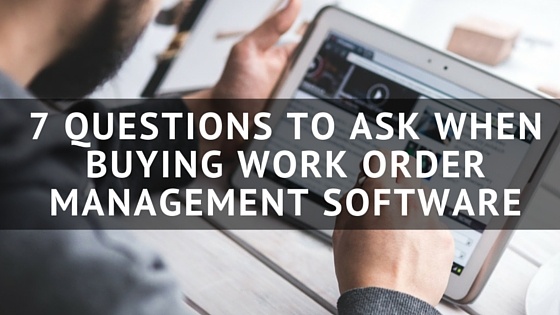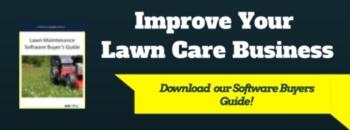 A few years ago, I was shopping for a car. I’m not going to lie, I hate shopping for cars. Car salespeople typically aren’t making an educational sale. They’re trying to get you inside their building and inside the car so that you make an emotional, rather than intellectual, buying decision. And, I admit it, I’m easily suckered into warm buildings with coffee or fast cars with more cupholders than I have cups. So I was the perfect prey for these salespeople.
A few years ago, I was shopping for a car. I’m not going to lie, I hate shopping for cars. Car salespeople typically aren’t making an educational sale. They’re trying to get you inside their building and inside the car so that you make an emotional, rather than intellectual, buying decision. And, I admit it, I’m easily suckered into warm buildings with coffee or fast cars with more cupholders than I have cups. So I was the perfect prey for these salespeople.
I eventually bought a car, but at the end of the process, I felt like I hadn’t asked enough questions and that the questions I’d asked were the wrong ones. Which got me thinking: If someone is buying a work order management software solution, what questions should they ask?
Here’s a list of 7 questions to start with when buying a work order management software solution:
What’s the pricing structure?
I’ve always felt you shouldn’t make a buying decision based solely on price. I use vacuum cleaners as an example: I bought four cheap sub $100 models in a span of 6 years. They all sucked (unfortunately, not literally). Every single one stopped working within a year or two. So then I finally decided it was time for a Dyson. It cost 4 times as much, but guess what? It’s still going strong 8 years later. I had to pay a higher price initially, but I got more value in the long run.
So don’t focus on price, focus on value. But in order to figure out a price (and value), you often have to do some mental gymnastics to arrive at the true cost of a solution. You might have an implementation fee, a monthly subscription, a per user fee, support fees and other miscellaneous fees. Figure out your total cost in years 1, 2 and 3 to determine your true price. And don’t forget to ask probing questions about how long it takes to get up and running and how much of your time is required during setup. If one solution takes 80 hours of your time, and one 20, be sure to consider your time into the total cost of the software solution.
What kind of support is offered?
Apple is known for selling expensive products. But what they’re also known for is their incredible replacement program. It’s not unusual for Apple to replace a product free of charge even though it’s no longer under warranty. They stand behind their products more than most hardware manufacturers.
You want your work order management software vendor to likewise stand behind their product. Ask them what kind of support (free or paid?), what their support hours are, where their support personnel are located, and what type of support is offered (toll-free phone, chat, etc.). See if they have any data about first call resolution, average time spent on hold and other metrics that show how responsive their support is. You don’t want your business to shut down because your software solution isn’t working and you can’t reach support.
Do you have references?
When I’m shopping for a contractor of any kind, that’s always my first question. I want to talk to people that have actually used the contractor and see what their experience is like. Past performance is one of the best indicators of future performance.
Many companies will have customer testimonials on their website, but they won’t use full names or real names. That should set off some alarm bells, especially if they make excuses about wanting to protect the privacy of their customers when you ask them for references. If a work order management software company doesn’t have references, you don’t want to consider them.
Also, before you call references, be sure you have a list of questions that you want answered. If your software vendor is smart, they’ll provide you with references similar to you. So if you’re looking for software for your irrigation business, they should give you references from other irrigation companies. If they don’t, it’s a sign that their software may not be a good fit for a business like yours.
How easy to use is the system?
Anyone remember that vibrating football game you had as a kid? Was that seriously not the dumbest invention ever? It was impossible to replicate a real football game. Inevitably, as soon as you turned on the vibration, your QB would run into the wrong end zone or directly toward the sideline. And it took hours just to run a single play.
You don’t want your software to be as cumbersome as that vibrating football game. Always ask for a live demo so you can see the salesman use the program in real time. Ask probing questions and see how many clicks it takes to do common tasks. Review the layout and see if you or your team will be able to understand where to go. Remember that you’ll be spending a lot of time with the software, so if it takes a long time to perform a simple task, it may not be the right choice for you.
How configurable is the solution?
Things like neck chains or wristwatches may be considered one-size-fits-all, but software really isn’t. Your business is probably unique. Heck, our field service software was first created solely for irrigation businesses, but even then it was hardly one-size-fits-all. Everyone does things slightly differently, and you need your software to be similarly configurable. Ask questions about creating custom fields to see how flexible the solution is. See if it’s designed for a specific use or if it was created more broadly. See if you can change field names and process names to fit your workflow.
What kind of training is offered?
Remember when you were learning to ride your bike? You probably started with training wheels and then had your parents hold up the bike and give you a push. Most likely, you didn’t just jump on the bike and go. Learning to ride a bike is a process, not an event.
The same is true for your software solution. No matter how easy to use it is, at some point you’ll need to start with training wheels. Most work order management software is going to require training. So ask how the training works. Do they have dedicated trainers? Are there online learning resources like videos and reference documents? How much time is required during the training process? Are there clearly defined steps in the process? How quickly will you actually be using the system?
In many cases, people buying software overlook training, but it’s vital to getting the most out of our software investment.
What else can the software do?
In baseball, the most valuable position players are those who have what are called five tools. These folks can hit for average, hit for power, steal bases, are great in the field, and have strong arms. They’re rare, but they are infinitely more valuable than a guy with say three of those tools.
Likewise for your software solution. You may be looking to manage your work order process, but ask what else the software can do. Does it integrate with your Quickbooks software? How does it route your service personnel? What kind of metrics or reporting functionality does it offer? Does it handle time tracking? What about parts tracking and vehicle maintenance tracking? The more functionality it has, the more likely you are to be able to grow into the system and get even more value out of your purchase.
This is far from an exhaustive list of questions to ask, but just by asking these simple questions, you’ll get a better idea of what software solution is right for your company. And you’ll lessen your odds of getting suckered into buying something you don’t really need, like me and my car with 40 cupholders, but no power door locks.
Want to learn more about what to look for when shopping for a field service management software? Download our free Lawn Maintenance Software Buyer's Guide today!








